Egg shortages: What's causing the problem and how long will it last?
- Published
Watch: Ros Atkins on… Why eggs are being rationed
Supermarkets have been left with empty shelves recently as the UK faces an egg shortage.
Shops have imposed limits on how many customers can buy, while farmers are struggling to produce enough due to rising costs.
Why is there an egg shortage?
Firstly, it appears there is not one single reason for the shortages - particularly as retailers and farmers are blaming different things.
The British Retail Consortium (BRC) told BBC News there were a variety of factors including the current outbreak of avian flu, supply issues and the cost of production.
Some farmers have also blamed retailers for not paying a fair price for eggs as production costs soar.
Andrew Opie, director of food and sustainability at the BRC, said: "Supermarkets source the vast majority of their food from the UK and know they need to pay a sustainable price to egg farmers.
"However, they are also facing additional costs and are working incredibly hard to limit price increases for consumers during a cost-of-living crisis where many people are struggling to afford the essentials."
The Department for Environment, Food and Rural Affairs (Defra) told BBC News there were a number of factors behind the current shortage: "We understand the difficulties that rising costs for feed and energy over the last year, combined with the bird flu outbreak, are causing issues for farmers and we are working with industry to monitor the egg market."
The war in Ukraine could also be playing a part in the chicken and egg shortages, as both Russia and Ukraine are major producers of wheat - a key ingredient in chicken feed.
And food inflation was revealed to have hit an all time high on Wednesday as the BRC's latest statistics showed food inflation at 12.4% this month, which is up from 11.6% in October.
How will the egg shortages affect me?
Supermarkets across the UK have put in place restrictions on how many eggs customers can buy:
Asda - two boxes of eggs per shopper until further notice, although they did not say whether this was boxes containing six eggs or that larger ones which hold 12
Lidl - three boxes of eggs at any one time
Tesco - no more than three boxes can be bought at once
Morrisons - two-box limit
Ocado - two-box limit on certain egg brands
Sainsbury's, Waitrose and the Co-op are not currently rationing eggs. BBC News has not had responses from M&S, Aldi and Iceland.
People may have already noticed eggs are more expensive at the moment, with just over 40% of the 149 fresh egg lines sold in all major supermarkets having seen prices rise by at least 15% between January and the first week of November, according to data analysts Assosia.
They added the biggest rise was at Asda, where the price of a half-dozen large free-range eggs is now 51.4% higher than it was at the start of 2022.
The second biggest increase was at Aldi, where the price of a box of six Merevale large free-range eggs went up by 10p in October to £1.49.
This made the product 50.5% more expensive than it was at the start of the year.
It is not clear so far how the hospitality sector has been affected or how many venues have already taken eggs off their menus.
Eggs are being swapped for sausages or hash browns in breakfasts at pub chain JD Wetherspoon.
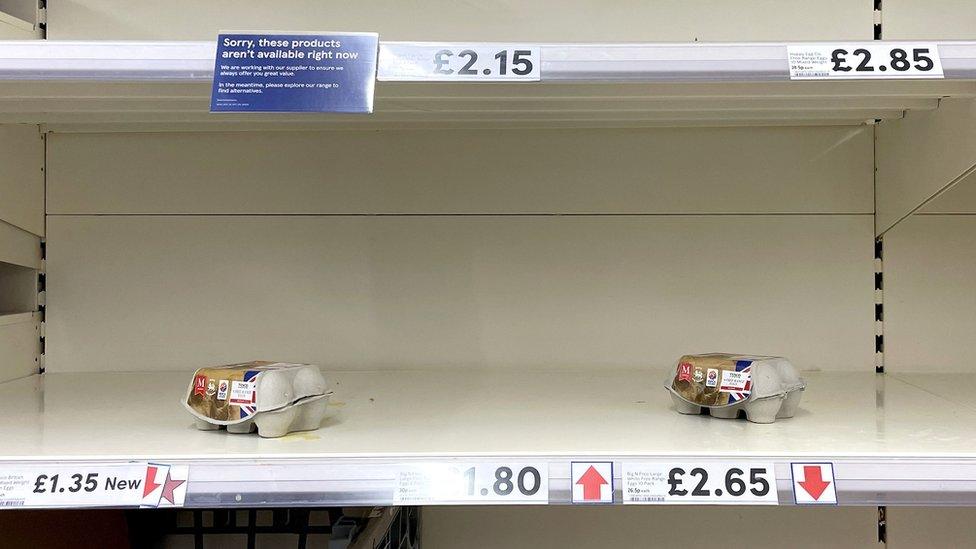
Are the egg shortages linked to bird flu?
Yes, but there's a debate about how much of an impact avian flu is really having on the industry.
The current outbreak of avian flu is the biggest on record in the UK.
Some 2.3 million birds have died or been culled since October, according to Defra, which is expected to affect egg production if chickens are being culled too.
Avian flu generally affects wild birds, but it can also spread to poultry.
However, Mr Opie said supermarkets were working to make sure the outbreak would not affect the sales of eggs.
He told BBC News: "While avian flu has disrupted the supply of some egg ranges, retailers are experts at managing supply chains and are working hard to minimise impact on customers."
Defra said that from Monday this week, all kept birds and poultry must stay indoors to help tackle the flu.
This is so wild birds do not come into contact with them, because if one bird tests positive, the whole flock will be slaughtered.
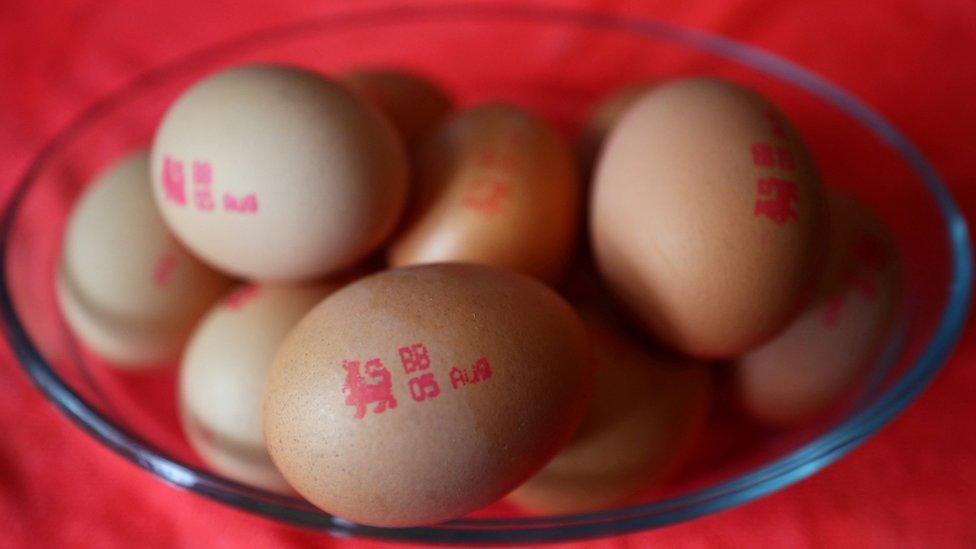
What do farmers say?
Welsh farmer Ioan Humphreys blames supermarkets for the shortage, saying they aren't paying egg producers enough.
In a video posted online, he said: "Yes my costs have increased. Yes, feed has increased, electricity has increased. But the supermarkets aren't paying us a fair price to cover the costs."
The cost of feed raw materials has risen by 90% since 2019, according to data compiled by the National Farmers' Union - although this does not include the actual manufacturing cost of feed which is energy intensive.
Farmer Tim Gelfs said the price of birds had also risen.
"The new birds we buy at 16 weeks of age have gone up, we used to pay £4 a bird, but now it's over £5 per bird," he told the BBC.
The British Free Range Egg Producers Association said producers had been hit with "huge price hikes in production costs".
"In March we asked for a 40p per dozen rise in egg prices at retail level and for the additional money to be passed down the chain to producers. While egg prices have risen by about 45p, most farmers have only received 5-10p of that rise."
Andrew Joret, British Egg Industry Council chairman, told BBC News the egg shortages are only likely to start ending once farmers know where they stand.
He said: "Farmers need the assurance that they can produce eggs without the fear of going out of business and we are confident supply will return to normal when cost pressures have been eased."
How long will the shortage last?
The short version is nobody knows when the egg shortages will end as so many of the contributing factors are still ongoing, such as the war in Ukraine, rising prices, the cost of living crisis and avian flu.
The government has tried to reassure the public that the shortages will be a short-term issue.
Environment Secretary Therese Coffey recently said: "There are still nearly 40 million egg-laying hens available, I'm confident we can get through this supply difficulty in the short-term."
But the BRC told BBC News it is not clear how long the shortages will last and the NFU has warned "this escalating situation is causing many to consider their future in the [egg] industry".
Related topics
- Published29 November 2022
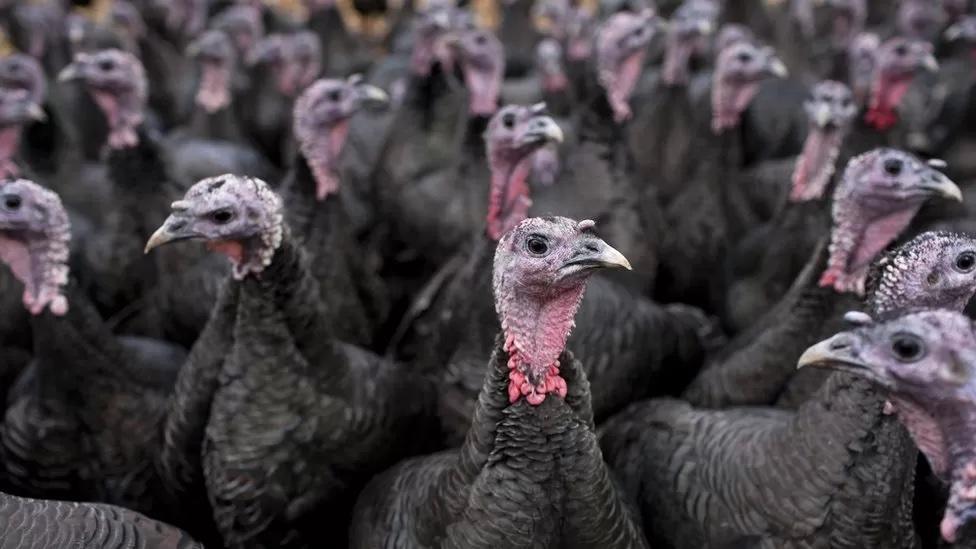
- Published18 June 2024
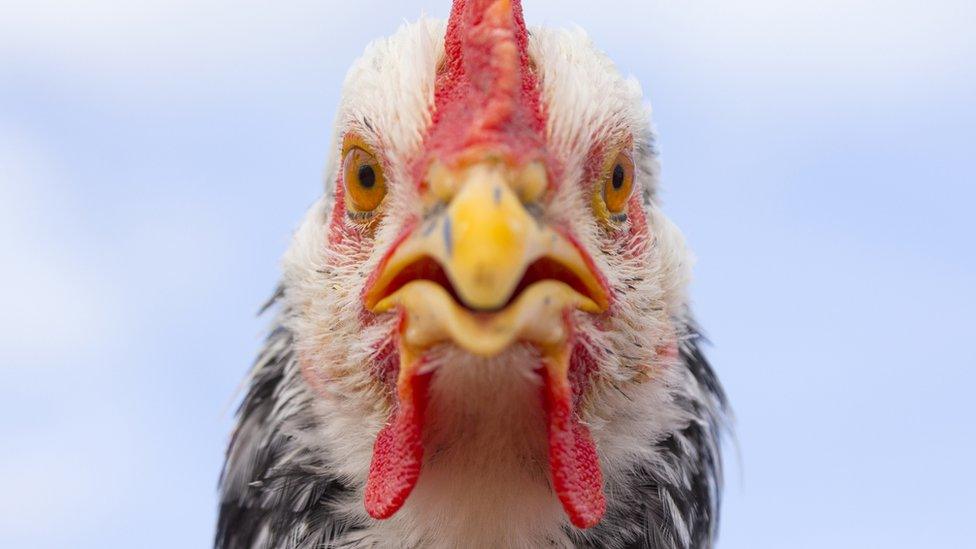
- Published28 April 2022
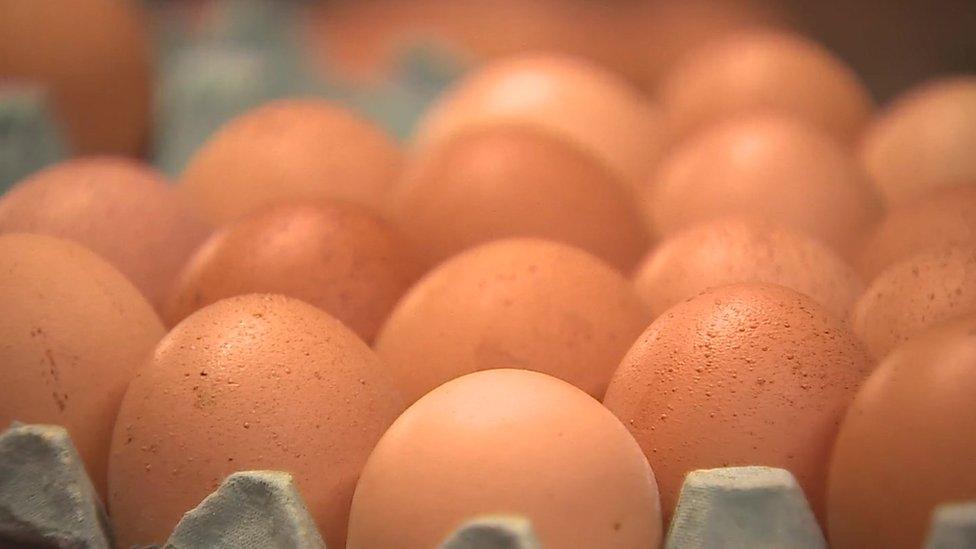
- Published16 November 2022
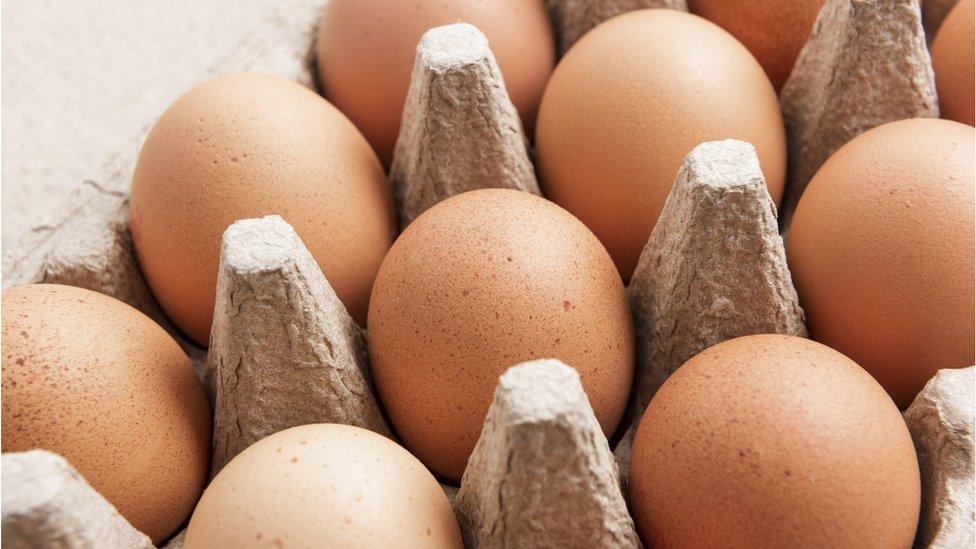
- Published22 November 2022
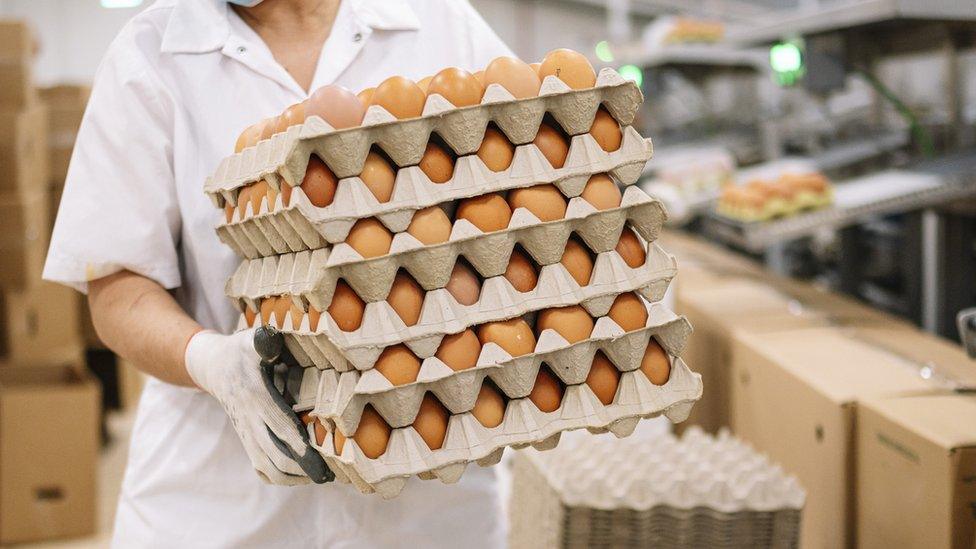
- Published8 November 2022
